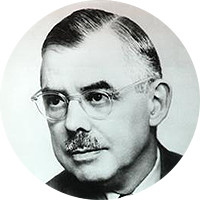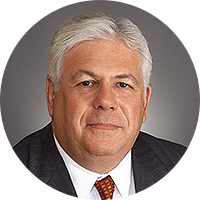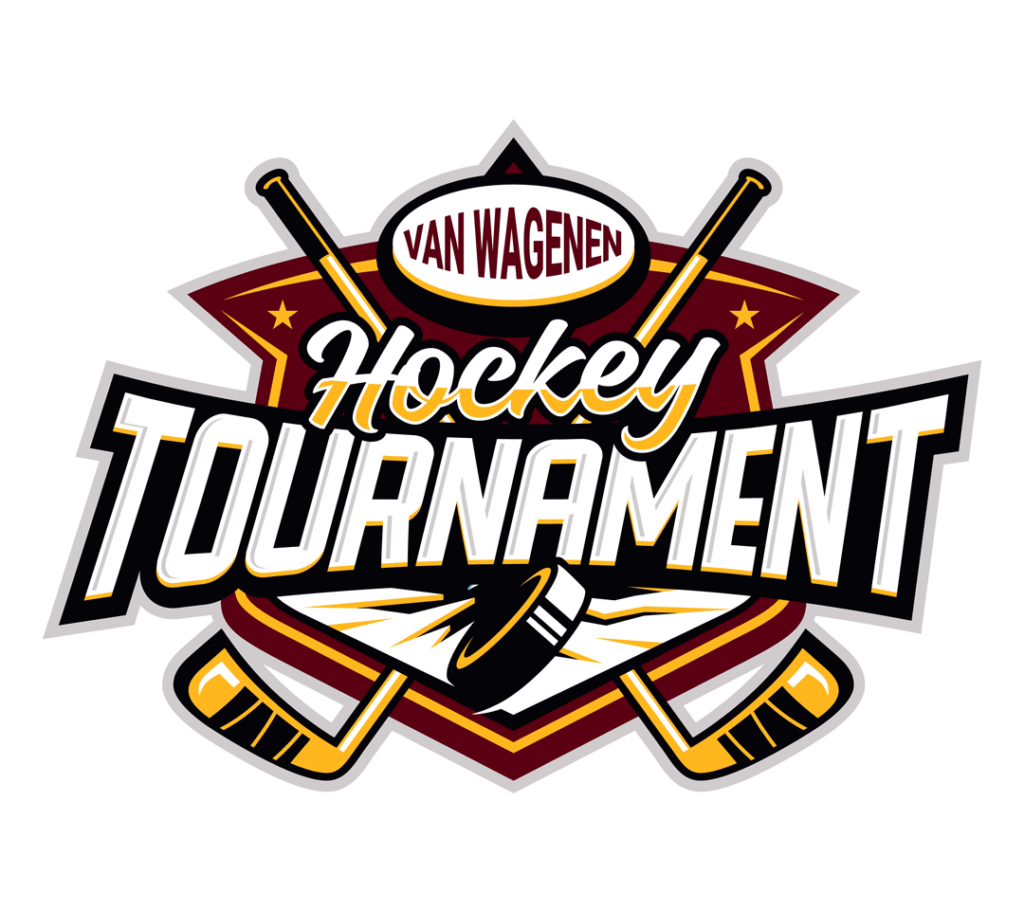
The William P. Van Wagenen Fellowship was established by the estate of Dr. Van Wagenen, one of the founders and the first President of the Harvey Cushing Society, now the AANS.
Following his neurosurgical residency with Harvey Cushing, Dr. Van Wagenen traveled and studied in Europe, broadening his knowledge of neurological surgery and the related basic sciences. This was done at the recommendation of Dr. Cushing, much as Cushing had done, following the example of Sir William Osler.
In considering what permanent contribution he might make to neurosurgery, Dr. Van Wagenen chose to support foreign travel for scientific enrichment. The Van Wagenen Fellowship was designed to give freedom in scientific development without the restrictive limitations usually imposed by many research grants and fellowships.
William P. Van Wagenen fellows are provided with:
- Up to $120,000 stipend for living and travel expenses to a foreign country for a period of 12 months;
- A family travel and living allowance of $6,000 if spouse and/or children are accompanying the fellow;
- $15,000 of research support for the university, hospital or laboratory sponsoring the fellow; and
- If needed, $5,000 for medical insurance.

How to Apply
The next application cycle for the William P. Van Wagenen Fellowship will commence in September 2026 for the 2028-2029 academic year. The fellowship is open to all senior neurosurgical residents (PGY5, PGY6 & PGY7) in approved neurosurgery residency programs in North America and whose intent is to pursue an academic career in neurological surgery. The host institution must be outside of North America. When the application become available, you may apply below.
“The Van Wagenen Fellowship has opened doors and provided great opportunities for many recipients. It has been a key factor in fostering a number of successful academic careers.”
Robert A. Ratcheson, MD FAANS(L), former president of the AANS and 1972 recipient of the Van Wagenen Fellowship

Requirements
Application should be submitted with letters of reference, including one from the applicant’s Program Director. A letter from the proposed sponsor and documentation of intent to pursue an academic career, while not required, will strengthen the application.
The Van Wagenen Selection Committee will consider the originality and quality of the applicant’s proposal, the thoroughness with which the plan for a period abroad has been designed, personal attributes, and the quality of the research environment. Recommendations from the candidate’s previous sponsors and fellowship sponsors are important.
By January 30, 2027, the Chairman of the Van Wagenen Selection Committee will notify the winning applicant, who will be expected to begin their fellowship for the 2028-2029 academic year. A formal announcement of the award will be made at the 2027 AANS Annual Scientific Meeting.
For additional information, visit NREF Grants & Fellowships online or contact the NREF team at info@nref.org.
Van Wagenen Hockey Tournament
The 3rd Annual Van Wagenen Hockey Tournament hits the ice on Sunday, January 25, 2026, at the University of Minnesota’s 3M Mariucci Arena! Open to medical students, residents and faculty who play hockey, this is your chance to showcase your skills and enjoy some friendly competition. All net proceeds benefit the William P. Van Wagenen Fellowship program. Learn more: Van Wagenen Registration – Neurosurgery Research & Education Foundation

Past Van Wagenen Fellows
Since 1968, more than 50 fellows have pursued research and academic interests in neurosurgery abroad through the Van Wagenen Fellowship. See below for a listing of fellowship awardees for each year and location of their sponsoring institution.
| Year | Fellow | Sponsor Institution(s) | Country |
| 2025 | David Bergeron, MD | École Polytechnique Fédérale de Lausanne (EPFL) | Switzerland |
| 2024 | Brandon P. Lucke-Wold, MD | Nagoya University Graduate School of Medicine | Japan |
| 2022 | Bhuvic Patel, MD | Deutsches Krebsforschungszentrum (DKFZ)/ Universitätsklinikum Heidelberg | Germany |
| 2020 | Ezequiel D. Goldschmidt, MD, PhD | Karolinska Instituet | Sweden |
| 2018 | Kai Joshua Miller, MD | University Medical Center, Utrecht | The Netherlands |
| 2017 | Darrin J. Lee, MD, PhD | University of Toronto | Canada |
| 2016 | S. Kathleen Bandt, MD | Aix-Marseille Universite | France |
| 2015 | Lisa Anne Feldman, MD | University of Auckland | New Zealand |
| 2014 | Ausaf A. Bari, MD | University of Toronto | Canada |
| 2013 | David Ryan Ormond, MD | Rheinische Friedrich Wilhelms Universität Bonn | Germany |
| 2012 | Matthew Christopher Tate, MD, PhD | Hopital Guide Cliauliac; Hopital Saint Eloi | France |
| 2011 | Nicholas F. Marko, MD | University of Cambridge, Department of Applied Mathematics and Theoretical Physics (DAMTP) | United Kingdom |
| 2011 | Ben Waldau, MD, FAANS | University of Dresden (Center for Regenerative Therapies) | Germany |
| 2010 | Andrew W. Grande, MD | Helmholtz Zentrum Munchen | Germany |
| 2009 | Michael C. Park, MD, PhD | Assistance Publique L’ Hospital d’ Adulte de la Timone | France |
| 2008 | Samuel H. Cheshier, MD, PhD, FAANS | Lund University | Sweden |
| 2007 | James C. Miller, MD, FAANS | University of Tubingen | Germany |
| 2006 | Yu-Hung Kuo, MD, PhD, FAANS | Fliders Medical Centre | Australia |
| 2006 | Uzma Samadani, MD, PhD, FAANS | University of Goettingen | Germany |
| 2005 | Devin K. Binder, MD PhD FAANS | University of Bonn Medical Center | Germany |
| 2004 | Stephen M. Russell, MD, FAANS | Ludwig Maximilians, University of Munich | Germany |
| 2003 | Odette Althea Harris, MD, MPH, FAANS | University Hospital of the West Indies | Jamaica |
| 2002 | Saadi Ghatan, MD | Institute of Child/Health/Great Ormond Street Hospital | England |
| 2001 | Shekar N. Kurpad, MD, PhD, FAANS | Karolinska Institute | Sweden |
| 2000 | P. Charles Garell, MD, FAANS | Centre Hospitalier Universitaire | France |
| 1999 | Theodore H. Schwartz, MD, FAANS | Tobias Bonheoffer Max-Planck Institute for Neurobiology | Germany |
| 1998 | Kamal Thapar, MD, FAANS | University of Erlagen-Nurnberg | Germany |
| 1997 | Zelma HT Kiss, MD PhD | Centre Hospitalier Universitaire de Grenoble | France |
| 1996 | Howard L. Weiner, MD, FAANS | Institut d’Embryologie Cellulaire et Moleculaire | France |
| 1995 | Timothy C. Ryken, MD, FAANS | Cambridge Centre for Brain Repair | United Kingdom |
| 1994 | Ivar M. Mendez, MD, PhD, FAANS | University of Lund | Sweden |
| 1993 | Mark E. Linskey, MD, FAANS | Ludwig Institute for Cancer Research | England |
| 1992 | Mary Louise Hlavin, MD, FAANS | Cambridge University | England |
| 1991 | Ian F. Pollack, MD, FAANS | Centre Hospitalier Universitaire Vaudois/University of Uppsala | Switzerland/Sweden |
| 1990 | Walter A. Hall, MD, FAANS | Norwegian Radium Hospital/Frenchay Hospital | Norway/England |
| 1989 | David W. Newell, MD, FAANS | Inselpital | Switzerland |
| 1988 | Mark W. Jones, MD, FAANS | Queens Square | England |
| 1987 | Emily D. Friedman, MD, FAANS | Sandoz Institute/Hospital Salpetriere/Laboratory of Professor Bjorklund | England/France/Sweden |
| 1986 | Edward George Hames III, MD, PhD, FAANS | Kings College | England |
| 1985 | Marc R. Mayberg, MD, FAANS | Queens Square | England |
| 1984 | Edmund Frank, MD | Universitaire Vaudis | Switzerland |
| 1983 | Lawrence F. Borges, MD, FAANS | Merck, Sharpe & Dohme Research Laboratories | England |
| 1982 | Larry Van Carson, MD, MBA, FAANS | Hospital Foch | France |
| 1981 | Stephen J. Haines, MD, FAANS | Radcliffe Infirmary | England |
| 1980 | L. Dade Lunsford, MD, FAANS | Karolinska Sjukhuset | Sweden |
| 1979 | George W. Tyson, MD, MBA, FAANS(L) | Institute of Neurological Sciences | Scotland |
| 1978 | Jay D. Law, MD | Centro Ramon y Cajal | Spain |
| 1977 | William F. Chandler, MD, FAANS(L) | Karolinska Institute | Sweden |
| 1976 | Patrick J. Kelly, MD, FAANS(L) | Saint Ann and Foch Hospitals/Western General Hospital | France/Scotland |
| 1975 | Lawrence H. Pitts, MD, FAANS(L) | Institute of Neurological Sciences | Scotland |
| 1974 | W. Michael Vise, MD | Max Planck Institute | Germany |
| 1973 | Joan L. Venes, MD | Wellcome Research Institute | Scotland |
| 1972 | Robert A. Ratcheson, MD FAANS(L) | Brain Research Laboratory | Sweden |
| 1971 | Ira C. Denton Jr., MD, FAANS(L) | Kantonsspital Zurich | Switzerland |
| 1970 | M. Peter Heilbrun, MD | Bispejerg & Rigs Hospitals | Denmark |
| 1969 | John M. Tew Jr., MD, FAANS(L) | Kanatonsspital Zurich | Sweden |
| 1968 | Richard M. Bergland, MD | Oxford University | United Kingdom |
